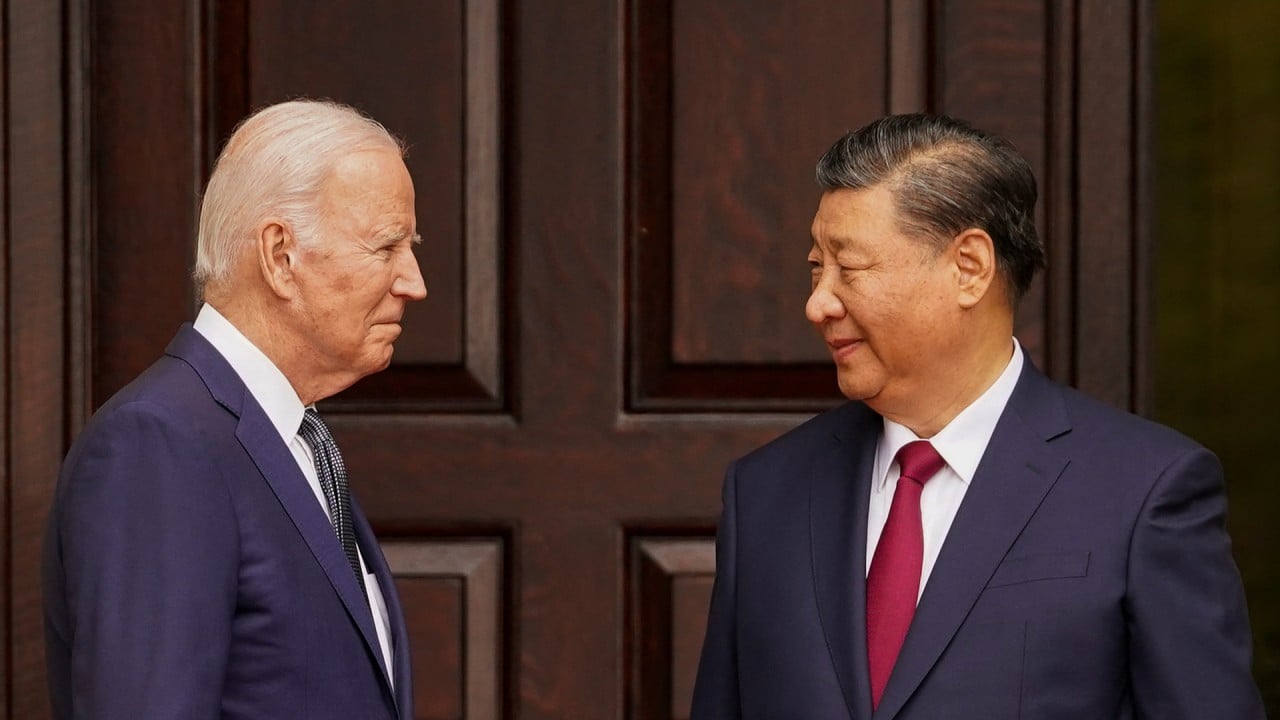
Xi Jinping and Joe Biden working to ‘enhance trust’ between US and China, says Foreign Minister Wang Yi after summit
- The two presidents announced deals on resuming military communications and tackling the US fentanyl crisis at their meeting in California
- Wang also said they had agreed to enhance cooperation across a broad range of fields and had discussed their ‘divisions’ over issues such as Taiwan
Biden reaffirms stance on Taiwan in meeting with Xi
“The San Francisco meeting is an important meeting to enhance trust, resolve doubts, manage differences, and expand cooperation between China and the United States,” Wang said.
Wang said both sides will also increase consultations on business, economy, finance, export controls, Asia-Pacific affairs, oceans, arms control and non-proliferation, as well as foreign affairs.
The US and China have set up multiple working groups and increased consultations on different issues in recent months as relations appeared to show signs of thawing. But tensions continue to escalate the Asia-Pacific region, with an increasing number of encounters between the two countries’ militaries.
The two also agreed to initiate negotiations on renewing the US-China Science and Technology Cooperation Agreement despite growing calls in the US Congress to scrap the long-running agreement due to the escalating technological rivalry between the two sides.
They also agreed to restart the China-US Joint Committee on Agriculture, and to “significantly increase” the number of direct flights between the two countries, which have yet to return to pre-Covid levels.
Wang also said there had been “all-round communication” on the Ukraine and Israel-Gaza wars, on climate change and on artificial intelligence.
Biden, Xi meet for first time in a year, agree to new talks
According to the White House, Biden told Xi that the US one-China policy remains unchanged and called for military “restraint” in the Taiwan Strait.
The Biden administration has increased arms sales for the island and the US military has made regular “freedom of navigation” transits through the Taiwan Strait, often triggering a show of force by the People’s Liberation Army in response.
Wang said Xi had told Biden these restrictions were not “de-risking” but creating risks instead.
“These wrong practices and the resulting uncertainty in China-US relations have become the biggest risk. Suppressing China’s science and technology is to curb China’s high-quality development and deprive the Chinese people of their right to development. We will never agree to it, and they will never succeed,” Wang said.
“The United States should take China’s concerns seriously, lift unilateral sanctions, and provide a fair, just and non-discriminatory environment for Chinese companies.”
According to Wang, Xi also said that China and the US should be “partners” instead of “rivals” and act in their mutual benefit.

 - Kawala Xie.jpg?itok=NogZcyZ-&v=1661304068)

